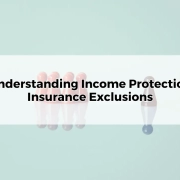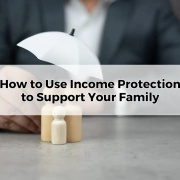How to Save Money on Income Protection Premiums
Table of Contents
ToggleIncome protection insurance is a crucial safety net that provides financial stability in case you are unable to work due to illness or injury. While essential, the premiums can be costly. Fortunately, there are several strategies to help reduce these costs without compromising on coverage.
Understanding Income Protection Insurance
Income protection insurance replaces a portion of your income if you are unable to work due to illness or injury. Premiums are calculated based on factors such as your age, occupation, health, and the specifics of the policy you choose. Understanding these factors can help you make informed decisions to lower your premiums.
Assessing Your Coverage Needs
Before purchasing a policy, it’s important to evaluate your financial situation. Determine how much coverage you need by considering your living expenses, debt obligations, and any other financial responsibilities. By tailoring your coverage to your specific needs, you can avoid overpaying for unnecessary benefits.
Choosing the Right Waiting Period
The waiting period is the time between when you become unable to work and when your benefits start to be paid. Selecting a longer waiting period can significantly reduce your premiums. However, it’s important to balance this with your ability to cover expenses during this gap. Find the optimal balance that works for your financial situation.
Opting for a Longer Benefit Period
A longer benefit period means you will receive payments for a longer duration if you are unable to work. While this typically increases premiums, it can provide better financial security. Evaluate your risk tolerance and financial needs to determine if a longer benefit period is worth the additional cost.
Selecting the Right Occupation Class
Insurers classify occupations into different risk categories. Understanding these occupation classes and accurately classifying your job can lead to lower premiums. For example, desk jobs are generally considered lower risk than manual labor, resulting in cheaper premiums.
Customising Policy Features
Income protection policies often come with optional extras, such as rehabilitation benefits or indexation of benefits. While these features can enhance your coverage, they also increase premiums. Identify which features are essential and which you can forgo to keep costs down.
Comparing Policies from Different Insurers
Shopping around and comparing policies from different insurers is one of the most effective ways to save on premiums. Use comparison tools and resources to evaluate different policies based on coverage and cost. This ensures you get the best deal without sacrificing necessary coverage.
Leveraging Group Income Protection
Group income protection policies, often offered by employers or professional associations, can be more affordable than individual policies. These group policies benefit from pooled risk, which can lower premiums. Explore options for joining a group policy through your workplace or industry group.
Paying Premiums Annually
Many insurers offer discounts for paying premiums annually instead of monthly. While it requires a larger upfront payment, it can lead to substantial savings over time. Budgeting for an annual payment can be an effective way to manage and reduce your insurance costs.
Seeking Professional Financial Advice
A professional financial adviser can provide tailored advice to help you find the most cost-effective income protection policy. They can assess your financial situation, recommend suitable coverage options, and assist in navigating complex insurance products. Choosing the right adviser with experience in insurance planning is crucial for maximising your savings.
Conclusion
Reducing your income protection premiums in Australia involves a combination of strategic choices and informed decisions. By understanding your coverage needs, choosing the right policy features, and leveraging professional advice, you can secure affordable income protection insurance that provides peace of mind without breaking the bank. For expert guidance, consider consulting with a financial adviser who can help tailor a plan to your unique financial situation.









